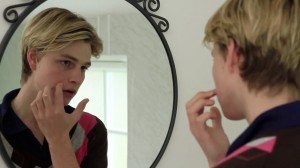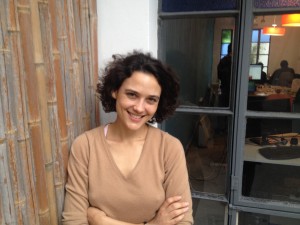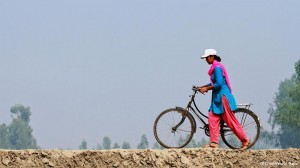Search Results for Tag: technology
Selfie addict helps others cope with tech overdose
Danny Bowman, 19, from the UK became one of the world’s first self confessed “selfie addicts” after posting 200 pictures of himself every day on Facebook and other social media platforms.
He was seeking admiration and adoration but was never satisfied with the way he looked. He lost weight and eventually even attempted suicide. He soon received therapy for technology addiction, OCD and body dysmorphic disorder – an excessive anxiety about personal appearance.
Now he devotes his spare time to raising awareness of mental health and technology related addictions and helps others with similar problems to get through their ordeal.
Listen to the report by Ashley Byrne in Northeast England:

Danny was never satisfied with his looks and was seeking admiration and adoration online (Photo: Fixers)

After an attempted suicide, Danny received help and was treated for technology addiction, OCD, and body dysmorphic disorder (Photo: Fixers)

After overcoming his addiction, Danny turned his attention to raising awareness of how technology can affect mental health and started a campaign with the charity Fixers UK. He is now traveling and talking about what he’s been through himself to help others in a similar situation (Photo: Fixers)
For more information regarding Danny’s campaign go to www.fixers.org.uk.
Direct democracy via smartphone
You can do just about everything on your smartphone – so why can’t you use it to engage in politics?
For Pia Mancini in Buenos Aires, it’s not just a far-fetched idea. The young activist has developed what she calls a Democracy Operating System – or DemocracyOS -, an open-source platform for political debate. Political parties and organizations and download the system and repurpose it to suit their own program – like a lot of people do with WordPress blogging software.
The idea is that voters all over the world can easily find out what each party stands for and inform themselves properly.
Pia is also a politician herself and co-founder of Argentina’s tech-savvy Net Party.
Listen to Michael Scaturro’s report from Buenos Aires:
Young Brit brings tech to the elderly
Keeping up to date with new technology can be daunting for people of any age but if you’re in your 70s or 80s and have gone your whole life without mobile phones, let alone Facebook and Twitter, new technology can be downright frightening. Nevertheless, many senior citizens have to get used to the Internet to do essential things like pay bills and book doctors appointments.
And that’s where Rachel Elson comes in. The 20-year-old from Walsall in the English Midlands has decided to give up her spare time to teach older people about new technology.
Listen to Liam Starkey’s report from Walsall:
Young Brit brings tech to the elderly
Backed by the Net, Infoladies help rural women
They bike hundreds of miles to bring advice and medicine to thousands in remote, impoverished villages. DW has honored the work of Bangladesh’s “Infoladies” with the 2013 Bobs online activism award.
Mahfuza Akter would have rather gone to university, but her family couldn’t afford the fees. After finishing high school, the country girl had practically no chance of getting a job in her native district of Gaibandha in northern Bangladesh. But luck stroke in 2010 when she managed to get a job as a so-called “Infolady.” For this extraordinary profession, the 25-year-old requires a bicycle, some high-tech devices and plenty of organizational skills.
Read the full article here.







Feedback